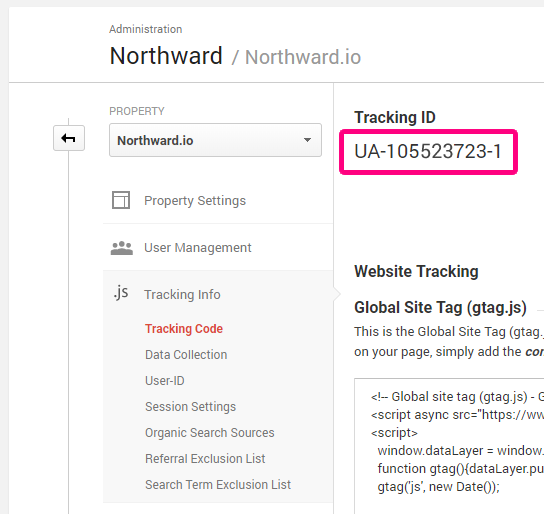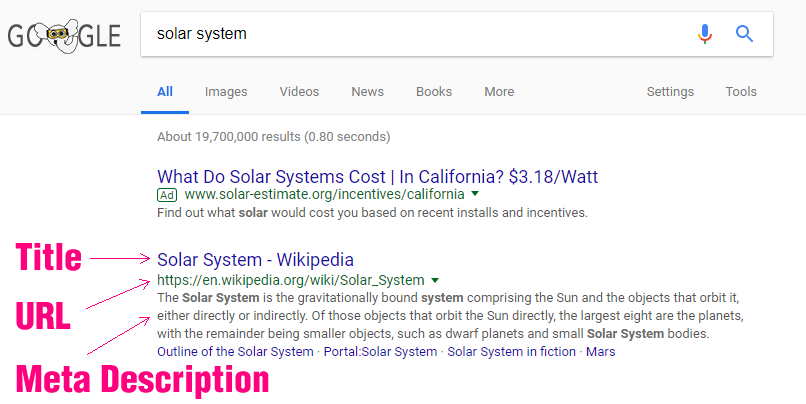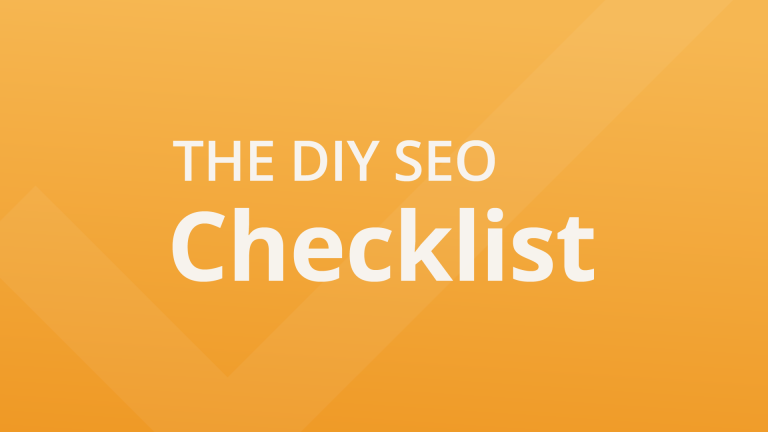So you’re going it alone? Awesome. This article is for you, DIY conqueror.
To keep this article simple, we won’t worry about the Content Management System (CMS) or website builder you’re using. You could be using Shopify, Squarespace, Weebly, Wix, WordPress, or any another option. Rather we’ll focus on platform agnostic optimizations you can do to any site.
Your website has been launched, or you’re pretty close to finishing. Great work! You probably spent a bunch of time researching FAQs, making mistakes, and fixing things. But hey, you got through it, because you do what it takes.
It’s now time, if you haven’t already, to put your SEO hat on. You now need some organic search traffic from Google, Bing and other search engines. We’ll go through all the things you need to think about and do. If you do everything mentioned in this article, you will rank very well.
First, let’s start with a prerequisite.
Measurement
The very first thing you’ll want to do after your site has launched is to put statistic tracking code on every page. Tracking may sound bad, but all of the data you’ll be collecting will not be personally identifiable info.
Many of the DIY website builders give you basic stats about your site, but most of the time you’ll need more data to make good decisions. The 100% free, yet sometimes daunting tool we recommend is Google Analytics.
Get signed up for a free Google Analytics account, and most CMS/website builders will give you step-by-step directions how to set it up on your site. Do a search for “how to add Google Analytics to Wix.” Swap Wix for whatever CMS you’re using.
In most cases, all you’ll need from your Google Analytics account is the UA number that will be assigned to you. Copy and paste that number into your CMS control panel, and you should be on your way.
You can find the UA number in Analytics by going to:
Admin > Property > Tracking Info > Tracking Code

Google Analytics can seem like a lot to navigate at first, and will likely be overwhelming. But you don’t need to learn it all at once. The most important thing is to get the tracking code installed on your site, so that you will have data to work with.
Why are website statistics important?
If you don’t have statistics about the pages people are visiting on your site, you might be wasting a whole lot of time building or fixing things people don’t actually need or want. Even really basic stats can go a long way in helping to plan what to work on.
What should I be measuring?
Several important stats to focus on when starting SEO:
- Pageviews
Which pages are people visiting, and how many times? - Acquisition
Where did people find these pages? Social media, or a link from a local directory referral, typed in directly, a Google search, or an ad? - Bounce Rates
What percentage of people looked at only 1 page and then left? - Page load times
How long does it take people to load your pages? Speed on mobile is very important here.
What should I do with the data?
The most important thing when starting SEO is having data. Once it is being sent to Google Analytics it will be there indefinitely. You will be able to access it anytime in the future and do time-based comparisons to help guide your efforts.
On-Page / Technical Optimization
Once you have website tracking set up properly, the fun part begins. Now you can start making changes and additions to your site.
The first and most important rule of SEO
Do what is good for your visitors.
If you are focused on making your site better for humans, you won’t fail.
If you are just trying to make the search engines happy, you likely will fail.
This point cannot be stressed enough. Focus on making your visitors’ experiences better, and you will be rewarded by search engines.
Happy visitors = Happy engines
Long gone are the days of things like keyword tags and keyword densities. You do not need to make sure your keyword is in every single place imaginable you can stuff it.
That will NOT work. And keyword stuffing may actually hurt your rankings. Stop focusing on search engines. Focus on what your visitors want.
Think of it like this. When people search Google, they are trying to get an answer to something. Even if they don’t ask a question, their intent is to find an answer or a solution. You need to provide answers and solutions to their questions.
If I search Google for “solar system” my intent would be to find an answer to the question(s):
“How many planets are there, and in what order are they in our solar system?”
I likely want to see an image of this also. An image would answer other questions for me like:
“How do the planets compare in size & color?”
“How far apart are they?”
“How many days are their orbital periods?
So even though my original search didn’t include a question mark, I am still looking for answers. The page on the internet that best answers those questions for users will likely rank very high in search results.
That is what you need to focus on.
Stop worrying about how many times you have the keyword on the page, and instead think about how you can best serve people’s intended questions.
Important On-Page Optimizations
Even though your main focus is on answering people’s questions, there are many on-page changes you can do to boost your chances of ranking higher on Google or other search engines.
Write a clear and compelling Title, Meta Description and URL for each page of your site.

These three elements are what make up the snippet in Google search results. Therefore you need to give these some attention. This is your primary opportunity to tell visitors “Hey, come click me instead of all those other pages.”
Utilize any relevant schema markup options your CMS provides to make your snippet more visible.

If you do a search for “schema markup Weebly” (swap for the CMS you use) you will likely find a lot of help with this. Rich snippets make your listing stand out from the competition.
Optimize your pages to load fast and look good on any mobile, or desktop device.
Speed optimization is a pretty in-depth topic and can get complicated, but you need to give this some attention. Run your individual pages through GTmetrix and WebPagetest to get a sense of how they perform on desktop and mobile connections.
You should be shooting for under 4 seconds load time for every page on your site. You could have great content, but if users have to wait 5+ seconds to load each page on your site, they will just bounce and go to your competition.
Make your site secure using HTTPS.
Google has included HTTPS as a ranking signal, so sites that are secure get a small ranking boost vs pages that aren’t secure. Many website builders/CMS give you the option to add SSL to your site. Take advantage if they do.
New Content
All of the above applies to pages you have already published, and also applies to new pages you add to your site.
In order to find new opportunities, you’ll need to do some keyword research. First, you should think of the problem(s) you or your business is trying to solve. Then, find phrases people are actually using in searches to get answers to those problems.
When you have a list of phrases, you should prioritize them from high to low opportunity. Create new content/pages starting at the top of your list, and focus on helping solve your visitor’s problem(s).
Off-Page Optimization
So, this article is about DIY SEO. But in reality, off-page optimization involves other people. That doesn’t mean you have to hire someone to do off-page SEO for you, but you will need to find people that will share your content.
Create content that answers questions better than all other pages out there, and your off-page optimization job will be a whole lot easier.
Answer this question
Who will help me share my content, and why?
If and when you answer that question, you will be able to put together a plan to earn incoming links & mentions from around the web.
Incoming links can be from people on social media, or from other websites that link to your site or an individual page on your site.
Mentions are simply someone talking about your business or brand, without posting a link.
The more links and mentions your pages receive, the easier it is for people and search engines to see that your site is relevant and high quality.
Your plan for earning more links and mentions should include a specific list of people and websites to target.
Once you have this list, contact each and every one of them and explain to them why they should share your page/website with their audiences.
Conclusion
There are many other potential optimizations you can do, depending on your industry, your time and resources. The above are the most important tasks that you can start yourself today to rank higher organically in search.
You don’t need to do everything at once. Optimization takes time, and you may not see positive results for days, weeks or even months from the time you start.
Pace yourself for the long term. Your efforts WILL pay off.
